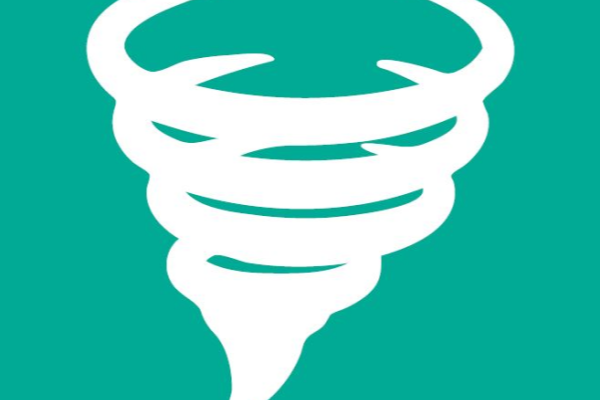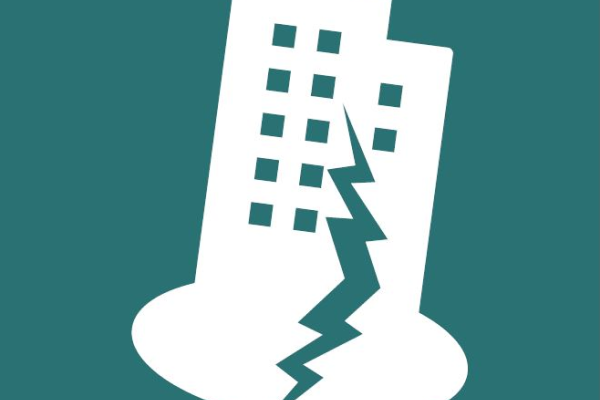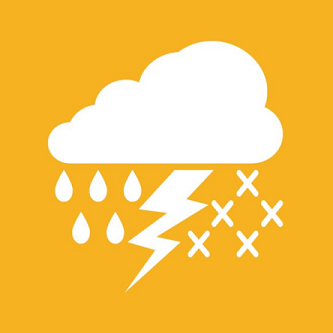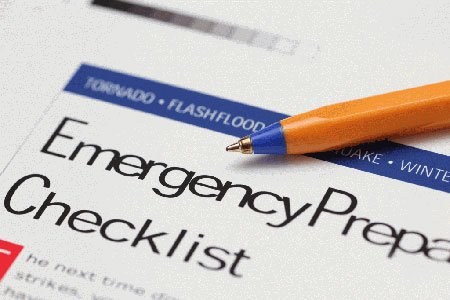Are you #CUReady?
Being #CUReady
Experiencing an emergency is a matter of “when” rather than “if”. Being prepared and ready will provide some stability and control during a chaotic situation.
There are four vital components to be #CUReady:
1. Know the Risks
It is important to know the risks and hazards that could affect the campus and the City of Ottawa. Hazards, whether natural or intentional, can vary from one community to another. Knowing more about hazards and local threats is an important part of being prepared.
2. Stay Informed
Mobile apps are a great way of staying informed. All of the apps listed below are capable of providing emergency alerts and/or keeping you informed about weather advisories, watches, and warnings.
- Emergency Notification System
- Environment Canada WeatherCAN App
- City of Ottawa App – Android
- City of Ottawa App – Apple
3. Have a Plan
In an emergency, it is important to know what to do, where to go, and who to contact. Prepare a plan, so that you have information readily accessible in an emergency. As you become familiar with our Emergency Procedures, take the time to develop a plan for work, school, and home.
Your plan should include the following:
Personal Information
This section should include your name, address, and phone number. As well as any supplementary information, including your employer, work address, and office extension.
Emergency Contacts
This section should include a minimum of two contacts that you can contact in the case of an emergency. You should include their name, phone number, and address. Note: These are your personal emergency contacts, so choose individuals that you are comfortable with reaching out to if you are in need of assistance.
Emergency Numbers
This section should include all important numbers that you may need to reach out to in the case of an emergency. Remember that in an emergency you may not have access to a contact list within your phone, so it will be important to have a paper copy. Numbers that are recommended to have on hand are numbers for each of the emergency services (in the case 9-1-1 service failure); non-emergency numbers for your local police and fire services; insurance company; your children’s school; health clinic; and family doctor.
Meeting Location and Safe Destination Site
This section should include where you should meet up with your family members in case you need to evacuate your home, office, or another location. List alternate locations as well in case your first location is inaccessible. It is also important that if you are making a plan for campus, you should make note of your building’s safe destination site.
Medications and Health History
This section should include any medications that you currently take and any important notes about your health. This should include any special health needs, such as medical conditions, allergies, and health insurance information.
Pet or Service Animal Information (Optional)
If you have a pet or have a service animal, it is important that their needs are also considered within any plan. Advanced planning may be required should you need to evacuate, as animals may not be allowed in hotels or public shelters. Identify a location where you may be able to take your animal, such as a pet-friendly hotel, kennel, boarding facility or emergency shelter.
An emergency plan template (PDF, 172 KB) is available to get you started.
Additional family member (PDF, 141 KB) and pet (PDF, 158 KB) templates are also available.
4. Build a Kit

Carleton University’s Emergency Kit Guidance (PDF, 32.7 KB)
72 Hour Kit
If an emergency happens in your community (e.g. storm or power outage), it may take time for emergency workers to reach you or municipal services to be restored. You should be prepared to take care of yourself and your family for a minimum of 72 hours at home.
Basic Kit
- Water – at least two litres of water per person per day; include small bottles that can be carried easily in case of an evacuation order
- Food that won’t spoil, such as canned food, energy bars and dried foods (replace food and water once a year)
- Manual can-opener
- Hand crank or battery-powered flashlight (and extra batteries). Replace batteries once a year
- Hand crank or battery-powered radio (and extra batteries), or a weather radio
- First aid kit
- Extra keys to your car and house
- Some cash in smaller bills, such as $10 bills
- A copy of your emergency plan and contact information
If applicable, other items such as prescription medication, infant formula, equipment for people with disabilities, or food, water and medication for your pets or service animal (personalize according to your needs).
Recommended Additions
- Two additional litres of water per person per day for cooking and cleaning
- Candles and matches or lighter
- Change of clothing and footwear for each household member
- Sleeping bag or warm blanket for each household member
- Toiletries
- Hand sanitizer
- Utensils
- Garbage bags
- Toilet paper
- Household chlorine bleach or water purifying tablets
- Basic tools (hammer, pliers, wrench, screwdrivers, work gloves, dust mask, pocket knife)
- A whistle (in case you need to attract attention)
- Duct tape (to tape up windows, doors, air vents, etc.)
Ready-To-Go Bag
A Ready-To-Go Bag is a collection of items that you may need should you have to leave your
location in a hurry (hazardous material leak, fire, etc.). Make sure there are enough supplies for
everyone if you are building a bag for your family.
In Your Bag
- Eyeglasses, hearing aids, personal aid items, etc.
- Extra set of keys
- 1 set clothes/socks/footwear
- Pen/paper
- Game/colouring book
- Comfort item (stuffed animal)
- Snack/bottle of water
- Power cords/chargers for electronic devices
- Flashlight/batteries
- Cash
- Blanket
- Toilet paper and personal supplies (pain meds, toothbrush, toothpaste, eye drops, etc.)
- Garbage bag
- Personal Emergency Plan
Add items that you feel may be important in an emergency and days after. Place all of these items in an easy-to-carry bag and place them in an easy-to-reach location.
Awareness Weeks
Join us semi-annually, in May and October, for Business Continuity Awareness Week, Emergency Preparedness Week, and Fire Prevention Week, where you can find us online and offline (at various locations across campus) talking preparedness, planning, and emergencies with the Carleton community.
Preparedness Resources
Get tips, hints, and links to more preparedness information at:
- City of Ottawa – Preparedness
- Emergency Management Ontario – Be Prepared For An Emergency
- Public Safety Canada’s Get Prepared
Campus Resources
Wondering what to do before, during, or after specific types of emergencies? Familiarize yourself with Carleton’s Emergency Procedures, which can be accessed through the Emergency Management website, Carleton Mobile app, Carleton 360 (log in through the Current Students website), and found posted in various classrooms and residence settings across campus.
There are also various supports and services available for the Carleton community:
Campus Safety Services
Emergency Assistance: 613-520-4444
Non-Emergency Assistance: 613-520-3612
Health and Counselling Services
Monday to Friday, 8:30 a.m. – 4:30 p.m.
Phone: 613-520-6674
Carleton University Student Emergency Response Team (CUSERT)
Email: cusert_communications@carleton.ca
* For emergency response, please contact Campus Safety Services at 613-520-4444
Environmental Health and Safety
Phone: 613-520-2600 x 3000
Equity and Inclusive Communities
Phone: 613-520-5622
Consider taking part in emergency preparedness training throughout the year. If you have any additional questions about preparedness for the Emergency Management & Continuity of Operations team, please contact us at emco@carleton.ca.
In case of an emergency, call Campus Safety Services at 613-520-4444 or 4444 from a university phone.
#CUReady Posts

Hazard Awareness: Tornadoes
Why Do Tornadoes Occur? Tornadoes can arise from two types of thunderstorms, supercell and non-supercell. Supercell thunderstorms occur when the wind above the ground blows …

Quote the Raven: Pro-Tips on Preparing for Fire Emergencies
Carleton University’s Fire Prevention Week and Fall Emergency Preparedness Week are from October 9 to 15, 2022. To kick off the week, the Emergency Management …

Hazard Awareness: Earthquakes
A Brief Overview: Earthquakes The earth is comprised of three layers – the crust, the mantle, and the core. The crust is the outer layer …

Are You #CUReady for Severe Weather?
A return to summer means peak season for thunderstorms and severe weather. When a storm is approaching, or a weather watch or warning is issued …

Quote the Raven: Pro-Tips on Personal Preparedness
Carleton University’s Fall Emergency Preparedness Week is October 18 to 22, 2021. To kick off the week, the Emergency Management & Continuity of Operations Team …

Quote the Raven: Pro-Tips on Practicing Emergency Preparedness
Carleton University’s Fall Emergency Preparedness Week is October 7 to 11, 2019. To kick off the week, the Emergency Management & Continuity of Operations Team …
Join the Conversation
Follow the conversation on social media and join in on the #CUReady conversation. We will be contributing to #CUReady through Carleton University accounts by sharing preparedness tips, information, and resources throughout the year.
Please note: Social media is NOT a reporting tool and accounts are not monitored 24/7.